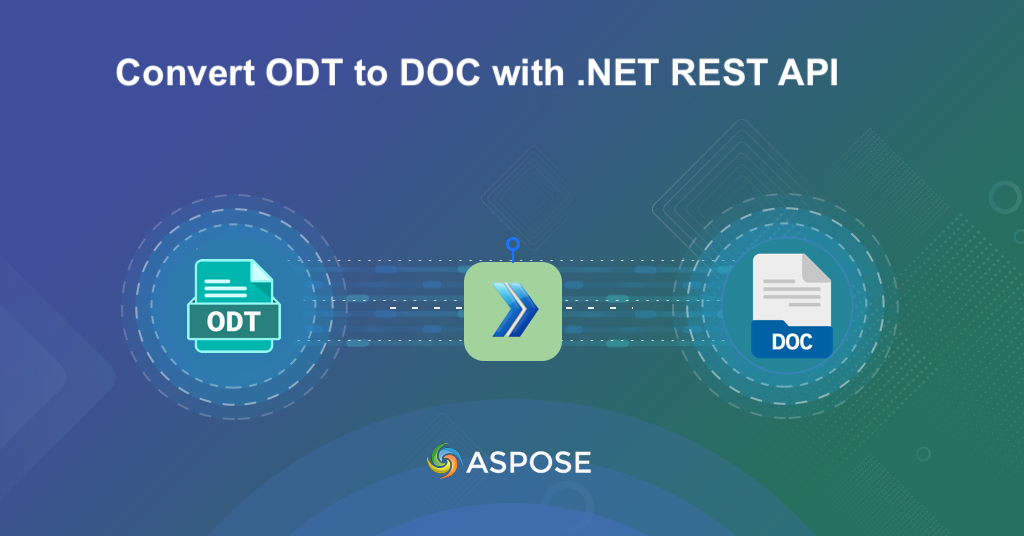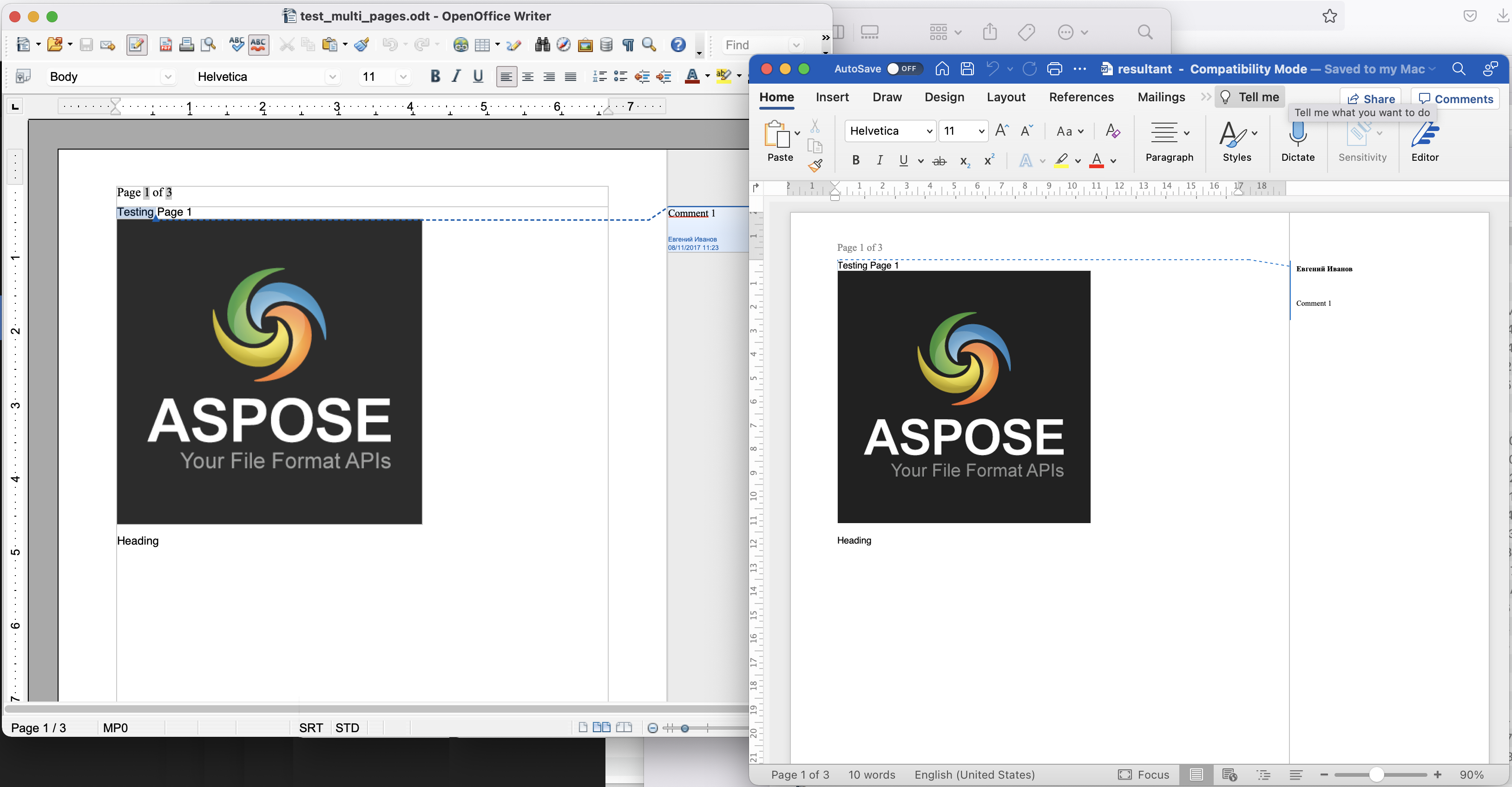
Convert ODT to DOC with .NET REST API.
The ability to seamlessly convert ODT files to DOC format using the .NET REST API has become an essential tool for businesses, professionals, and content creators. Whether you’re a writer aiming to share your work across different platforms, a business professional needing to collaborate with colleagues using varied software, or a developer streamlining document workflows, the benefits of mastering the ODT to DOC conversion process are clear.
This article delves into the critical role of ODT to DOC conversion, highlighting the necessity of this feature and outlining the advantages it brings to various industries.
- REST API for ODT to Word DOC Conversion
- Convert ODT to DOC with C# .NET
- ODT to DOCX Conversion using cURL Commands
REST API for ODT to Word DOC Conversion
Leveraging the capabilities of Aspose.Words Cloud for .NET, the process of converting ODT files to DOC format becomes an efficient and seamless endeavor. Its robust features offer a powerful toolkit that empowers you to perform ODT to DOC conversions effortlessly, ensuring that ODT documents retain their structure, styling, and content integrity while smoothly transforming into polished DOC files.
Furthermore, this cloud-based approach simplifies the conversion process, allowing you to focus on content rather than intricate technicalities. Now, in order to use the SDK, simply search Aspose.Words-Cloud in NuGet packages manager and click the Add Package button. Furthermore, please visit cloud dashboard and obtain your personalized client credentials.
Convert ODT to DOC with C# .NET
This section provides the details and the related code snippet to perform a seamless conversion of ODT to DOC format.

Preview of ODT to DOC conversion online.
Now, let’s explore some details of above stated code snippet.
var config = new Configuration { ClientId = clientID, ClientSecret = clientSecret };
var wordsApi = new WordsApi(config);
Create an instance of WordsApi class where we pass client credentials as arguments.
var sourceFile = System.IO.File.OpenRead(inputFile);
Load the content of input ODT file to stream instance.
var response = new GetDocumentWithFormatRequest(inputFile, format, outPath: resultant);
Create an object of Document conversion request where we pass input ODT, output format value and resultant file name as arguments.
wordsApi.ConvertDocument(response);
Call the API to initiate the ODT to DOC conversion operation. After successful operation, the resultant file is stored in cloud storage.
ODT to DOCX Conversion using cURL Commands
The conversion of ODT files to DOC format is made exceptionally convenient through the seamless synergy of Aspose.Words Cloud and cURL commands. This dynamic combination offers a versatile and efficient approach to perform ODT to DOC conversions effortlessly. This powerful integration provides you a simplified method to enhance document compatibility and presentation quality.
Now, with this approach, the first step is to generate a JWT access token by executing the following command.
curl -v "https://api.aspose.cloud/connect/token" \
-X POST \
-d "grant_type=client_credentials&client_id=bb959721-5780-4be6-be35-ff5c3a6aa4a2&client_secret=4d84d5f6584160cbd91dba1fe145db14" \
-H "Content-Type: application/x-www-form-urlencoded" \
-H "Accept: application/json"
Now simply execute the following command to load the input ODT from cloud storage, convert it to DOCX format and save the resultant file on local drive.
curl -v "https://api.aspose.cloud/v4.0/words/{inputFile}?format=DOCX" \
-X GET \
-H "Authorization: Bearer {accessToken}" \
-o "resultant.docx"
Replace inputFile with the name of ODT file available in cloud storage, and accessToken with JWT token generated earlier.
Conclusion
In conclusion, the conversion of ODT files to DOC format emerges as an essential capability, addressing the modern demand for enhanced document compatibility and polished presentation. With two robust approaches at your disposal, the integration of Aspose.Words Cloud for .NET and the utilization of cURL commands, you’re equipped to navigate this conversion seamlessly based on your preferences and business requirements. So, whichever path you choose, both options underscore the value of simplifying document interchangeability, ensuring that your ODT content transforms seamlessly into professional-grade DOC/DOCX files.
Useful Links
Related Articles
We highly recommend visiting the following blogs: